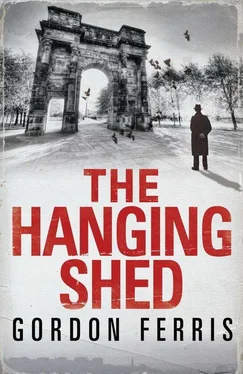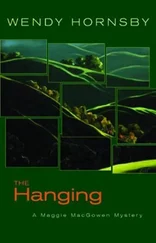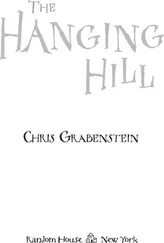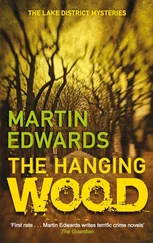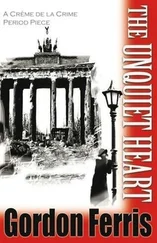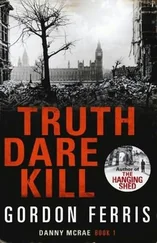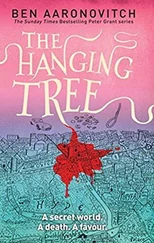Gordon Ferris - The Hanging Shed
Здесь есть возможность читать онлайн «Gordon Ferris - The Hanging Shed» весь текст электронной книги совершенно бесплатно (целиком полную версию без сокращений). В некоторых случаях можно слушать аудио, скачать через торрент в формате fb2 и присутствует краткое содержание. Жанр: Триллер, на английском языке. Описание произведения, (предисловие) а так же отзывы посетителей доступны на портале библиотеки ЛибКат.
- Название:The Hanging Shed
- Автор:
- Жанр:
- Год:неизвестен
- ISBN:нет данных
- Рейтинг книги:5 / 5. Голосов: 1
-
Избранное:Добавить в избранное
- Отзывы:
-
Ваша оценка:
- 100
- 1
- 2
- 3
- 4
- 5
The Hanging Shed: краткое содержание, описание и аннотация
Предлагаем к чтению аннотацию, описание, краткое содержание или предисловие (зависит от того, что написал сам автор книги «The Hanging Shed»). Если вы не нашли необходимую информацию о книге — напишите в комментариях, мы постараемся отыскать её.
The Hanging Shed — читать онлайн бесплатно полную книгу (весь текст) целиком
Ниже представлен текст книги, разбитый по страницам. Система сохранения места последней прочитанной страницы, позволяет с удобством читать онлайн бесплатно книгу «The Hanging Shed», без необходимости каждый раз заново искать на чём Вы остановились. Поставьте закладку, и сможете в любой момент перейти на страницу, на которой закончили чтение.
Интервал:
Закладка:
I blamed it on the extra four months I served after the fighting stopped last May. It was my own fault. My hitherto underused German was no sooner on display at the surrender of the 15th Panzer Brigade than I was seconded to the clear-up task force interrogating Nazi camp commandants and SS zealots. While my regiment was shipped home to be showered with the roses and kisses deserving of heroes, I was noting down the forced confessions of psychopaths and fanatics. Useful training for a journalist I suppose.
They let me home to a bitter autumn. A cold coming we had of it, just the worst time of the year for a journey…
I chose to be demobbed in London. A grateful nation gave me a Burton’s suit and trilby, a good mac, a solid pair of shoes and enough money to keep me drunk for as long as my liver lasted. Whenever I sobered, the tremors started. Whenever I slept, storm troopers came for me with slavering dogs and whistles. My language skills seemed to have improved; the nightmares were in German.
It was easier to stay drunk, skulking in south London, feeling sorry for myself, plunging in and out of black moods. Waking up with lead weights on my chest. Suffocating in my dreams. A few times the neighbours knocked on their ceiling to complain about the noise, like murder was being committed. I thought they were imagining things until I woke to the sound of someone sobbing and found it was me. Christmas came and went and winter ate into my battered bones. I hunched over tepid briquettes with a quilt round me gazing into the glow, looking for my future but only seeing my past.
I wanted to go home to Scotland, but how could I face them in this state? A wreck. A drunk. Just a liability to my mother. I fended her off with letters but I knew from the tone of her replies she was worried sick. They were even asking about me at her kirk. Where was her wee boy? The bursary winner, the scholar, the one that escaped. What was I up to? Why didn’t I come home to see her? Throughout, she never stopped going, never explained, never sought comfort or understanding from a soul. She’d never needed anyone’s approval except that of her man, my dad. And she was as certain of that fifteen years after his death as the day he married her.
But I hadn’t been completely forgotten. I was demobbed at the same time as the Guard’s brigadier who’d run the interrogation programme out of Berlin. He’d been given his old job back: on the board of the London Bugle. We had a beer. We had several beers. He got his editor to fling me some crumbs and keep flinging them at me until one day as the year turned I caught one. I managed to stay sober long enough to crack out a thousand words on black marketeering. It didn’t take much footslogging round my favourite bars to get the ammunition. The Bugle seemed to like the article, well, half of it anyway. They asked for more and I was beginning to scribble irregular pieces on the darker side of London life. I’d even started going to Les’s boxing gym to get my leg moving again and help soak up the anger that seemed always on tap.
So this cry for aid was premature. I wasn’t ready. Guilt hung about me like a shroud. Guilt about how I’d loitered in London and not come home to see my mother. Guilt about how I’d let myself go. Guilt that I’d made it home and scores of better men hadn’t. Guilt that my first feeling in response to Hugh Donovan’s summons was anger. I stabbed my fag out and marched up the hill.
EIGHT
There was no welcome flick of the curtains from my mother’s tenement. For a minute I panicked thinking the worse. But of course she wasn’t expecting me. I went in the close and up the single flight of stone stairs and knocked on the door. Nothing. I knocked louder. Then I checked my watch. It was half past one. Tuesday. I left my case by her door and hung my dripping coat on the doorknob. I walked down to the entry and out the back. Sure enough. I could hear the noise of splashing from the brick wash-house. Smoke was coming out the open door.
I stuck my head in. It was the witches’ scene from MacBeth. My mother was standing wreathed in steam next to a cauldron – the washing bine: the big metal dish that sat on a waist-high brick column. Underneath, a coal fire spat and glowed and boiled the water. My mother wore a headscarf and a pinny. Her blouse sleeves were rolled up and her arms were red and wet with suds. She held a sheet in both hands and was rubbing it up and down the ridged washboard that protruded from the bubbling pot. Behind her, one of her neighbours, Mrs Cuthbertson, was grinding the big handle of the mangle and pulling through another sheet. A steady cascade of water filled a wooden basin below the mangle. My mother’s face was puce but she was happy in her work, humming away to herself.
She looked up and her face lit. She flung her hands to her face, stopped and dropped them to her apron. She dried them and shot round the bine to me. She clutched my arms afraid to get me wet against her soaking washday clothes.
‘Douglas! You should have phoned. I’ve nothing ready. I havenae baked a thing. Are you all right? Is anything the matter?’
‘Mum, it’s OK. Can I no’ visit my mother without it being a national disaster?’
She looked up at me, her face losing its smile, tightening. ‘You’ve come about Hugh, haven’t you?’
Later, I heard her version of the story as we sat quietly sipping tea in front of the coal fire in the back room. It felt, as it always did, like being wrapped up in a cosy blanket. A tiny place. Two rooms, front and back, with the scullery leading off the back room. As the light fell outside, I got up and lit the gas mantles to send a soft glow round the room. The clock on the mantelpiece beat out the rhythm that had measured out my quiet boyhood absorption in a new book from the library. I prodded the fire so that the glow illumined the big black metal fireplace. We sat either side of it, mimicking the Wally dugs whose black china eyes gazed down on us from the mantelpiece. She’d drawn the curtain across the bed-in-the-wa’ and the room tucked itself round us. It was a world away from a cold cell in Barlinnie.
‘You don’t seem that surprised, Mum.’
‘About two weeks ago, Jessie Cuthbertson got a telephone call asking for me. It was a secretary from a solicitor’s office. Wanting to get in touch with you. Jessie had your number in her book and she gave the woman it. I hope you don’t mind?’ she asked anxiously. ‘We’ve got a note of the name.’
‘Of course not. It was fine.’
She nodded. ‘That poor wee bairn. And him Fiona’s boy too. The trial was in all the papers here, once they found he was a Kilmarnock man.’
My stomach flipped. It was one of the few times my mother had ever used her name in this house. Going out with a Catholic lassie had been as counter-cultural as voting Tory. Hugh had got past the religious censoring by dint of being a neighbour’s child.
‘Did you not think I should know?’
She looked embarrassed. ‘You had enough troubles. I thought maybe you’d heard and decided to say nothing. You don’t phone that often. Oh, I know it’s such a fuss.’
It was true. It involved me phoning Mrs Cuthbertson and her running up the stairs and getting my mother to come down. And my mother then panicking that I needed to call her and her shouting down the line because she was so far away. Trauma all round rather than a casual kindness. Letters were always easier somehow, and more lasting. I reread hers at least two or three times, just to hear the gossip about the town. But clearly there were some things that weren’t for writing down.
‘My fault, Mum. You know what I’m going to do? I’m going to get the phone put in here. And don’t you worry, I’ll pay the bills.’
Читать дальшеИнтервал:
Закладка:
Похожие книги на «The Hanging Shed»
Представляем Вашему вниманию похожие книги на «The Hanging Shed» списком для выбора. Мы отобрали схожую по названию и смыслу литературу в надежде предоставить читателям больше вариантов отыскать новые, интересные, ещё непрочитанные произведения.
Обсуждение, отзывы о книге «The Hanging Shed» и просто собственные мнения читателей. Оставьте ваши комментарии, напишите, что Вы думаете о произведении, его смысле или главных героях. Укажите что конкретно понравилось, а что нет, и почему Вы так считаете.
